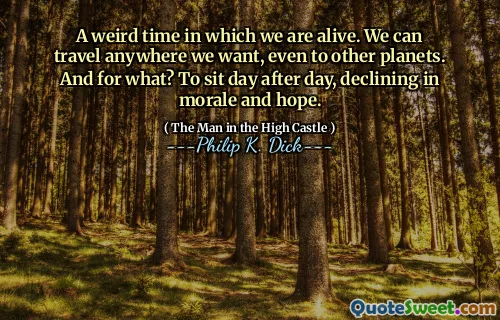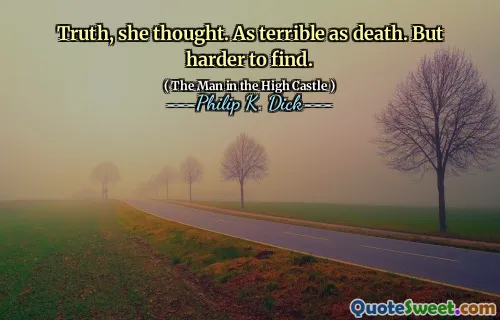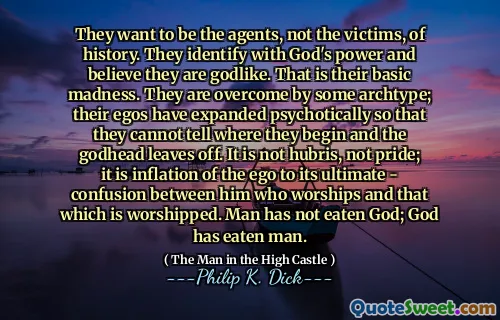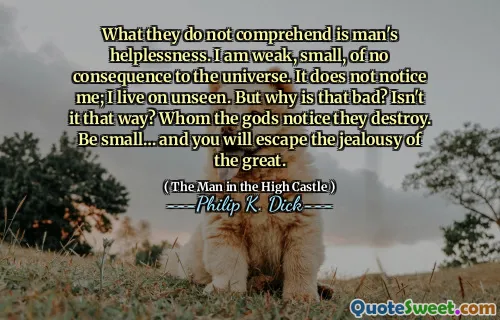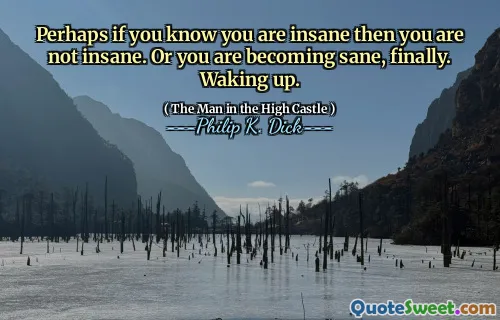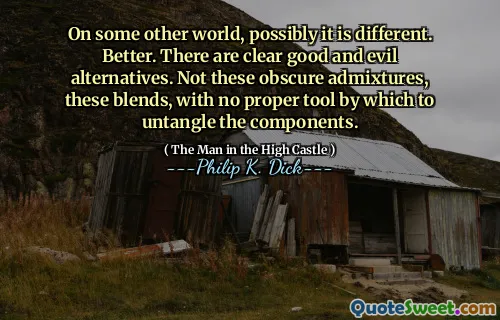
So we must presume that the worst, rather than the best, choice will be made. The sober and responsible elements will be defeated in the present clash.
In Philip K. Dick's "The Man in the High Castle," there is a prevailing sense of pessimism regarding the choices made during conflict. The quote suggests that it is safer to anticipate negative outcomes rather than optimistic ones. This indicates a belief that, especially in difficult situations, the more rational and responsible decisions are often overshadowed by less thoughtful, more reckless choices.
This perspective reflects the book's broader themes of power, control, and the nature of reality, where the characters are often trapped in oppressive systems that reward the worst aspects of human behavior. The acknowledgment that responsible voices are likely to be drowned out challenges readers to consider the implications of decision-making in times of crisis.
